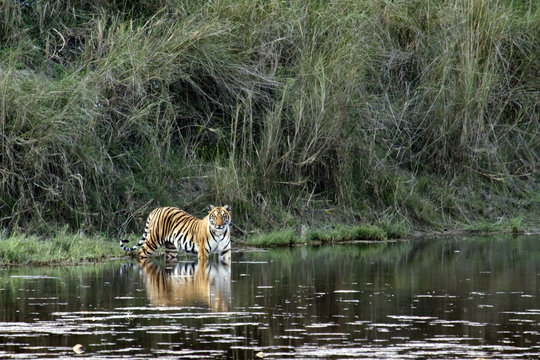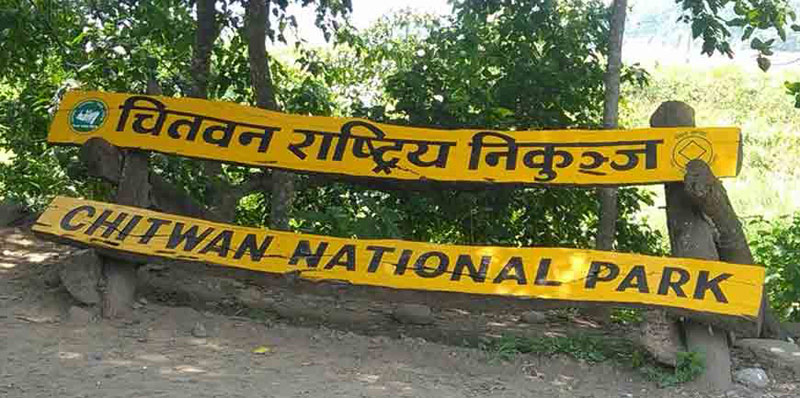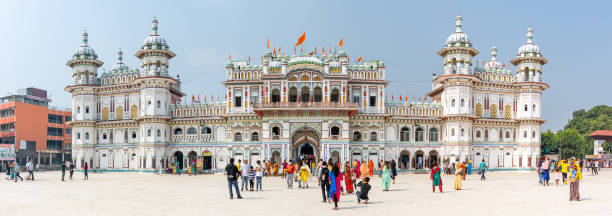Chitwan National Park, situated in the southern part of Nepal, serves as a sanctuary for wildlife and a sanctuary for those who cherish the natural world. Encompassing an extensive area measuring 952.63 square kilometers, the park is widely recognized for its abundant biodiversity, verdant scenery, and diverse ecosystem. Since its establishment in 1973, Chitwan National Park has earned the status of a UNESCO World Heritage Site, providing protection to endangered species and granting visitors a unique opportunity to observe wildlife in its undisturbed habitat.
One of the primary allures of Chitwan National Park lies in its population of Royal Bengal Tigers. These magnificent felines, distinguished by their characteristic stripes and commanding presence, rank among the world's most iconic and endangered species. The park is home to a notable number of tigers, and visitors have the chance to catch a glimpse of these elusive creatures during guided excursions through the jungle. Through rigorous conservation endeavors, encompassing anti-poaching measures and the preservation of natural habitats, the park has played a pivotal role in safeguarding the tiger population.
In addition to tigers, Chitwan National Park is renowned for its population of one-horned rhinoceros. These ancient creatures, adorned with their armadillo-like hide and reminiscent of prehistoric times, symbolize strength and resilience. The park provides a sanctuary for a substantial number of these rhinos, which can be observed grazing in the grasslands or bathing in the rivers. The park's successful conservation initiatives have contributed to the recovery of the one-horned rhinoceros population, rendering Chitwan a vital haven for their survival.
Chitwan National Park boasts a diverse ecosystem comprising dense forests, marshlands, and riverine habitats, which create an ideal environment for a wide array of flora and fauna. The park shelters over 700 species of wildlife, including sloth bears, leopards, elephants, crocodiles, and an extensive variety of birds. Bird enthusiasts are treated to the sight of both resident and migratory birds, such as the critically endangered Bengal florican, the vibrant Indian pitta, and the majestic white-necked stork. With its vibrant avian population, the park serves as a paradise for those passionate about birds and nature photography.
Exploring Chitwan National Park offers visitors a myriad of activities to fully immerse themselves in the marvels of nature. Jungle safaris, be it on elephant-back or in jeeps, enable visitors to venture deep into the wilderness and experience encounters with wildlife up close. Knowledgeable guides provide valuable insights into the park's flora, fauna, and conservation efforts, enriching the overall experience. Serene canoe rides along the Rapti River offer a peaceful and picturesque journey, allowing visitors to observe aquatic life and revel in the tranquility of their surroundings.
Chitwan National Park not only functions as a wildlife sanctuary but also serves as a cultural and traditional hub. The indigenous Tharu community, with its unique way of life and rich heritage, has harmoniously coexisted with nature in the park for generations. Visitors have the opportunity to engage in cultural programs and village tours to gain insights into Tharu culture, relish traditional dances, and savor authentic local cuisine. The Tharu people's deep-rooted understanding of the land and their conservation practices greatly contribute to the preservation of the park and the promotion of sustainable tourism.
Conservation efforts and community-based initiatives form integral components of Chitwan National Park's management. The park collaborates with local communities, organizations, and international agencies to champion sustainable development, wildlife protection, and community empowerment. These endeavors focus on education, awareness, and the promotion of eco-friendly practices, ensuring the long-term preservation of the park's biodiversity and the well-being of the local residents.
In conclusion, Chitwan National Park is a wildlife sanctuary that combines natural splendor, diverse wildlife, and cultural richness. Its impressive population of tigers, rhinoceroses, and other wildlife, along with its lush landscapes and varied habitats, make it a paradise for nature enthusiasts and advocates of conservation. Exploring Chitwan is a captivating journey that allows visitors to witness the marvels of the animal kingdom, recognize the significance of conservation, and experience the harmonious coexistence of nature and culture.







No comments:
Post a Comment